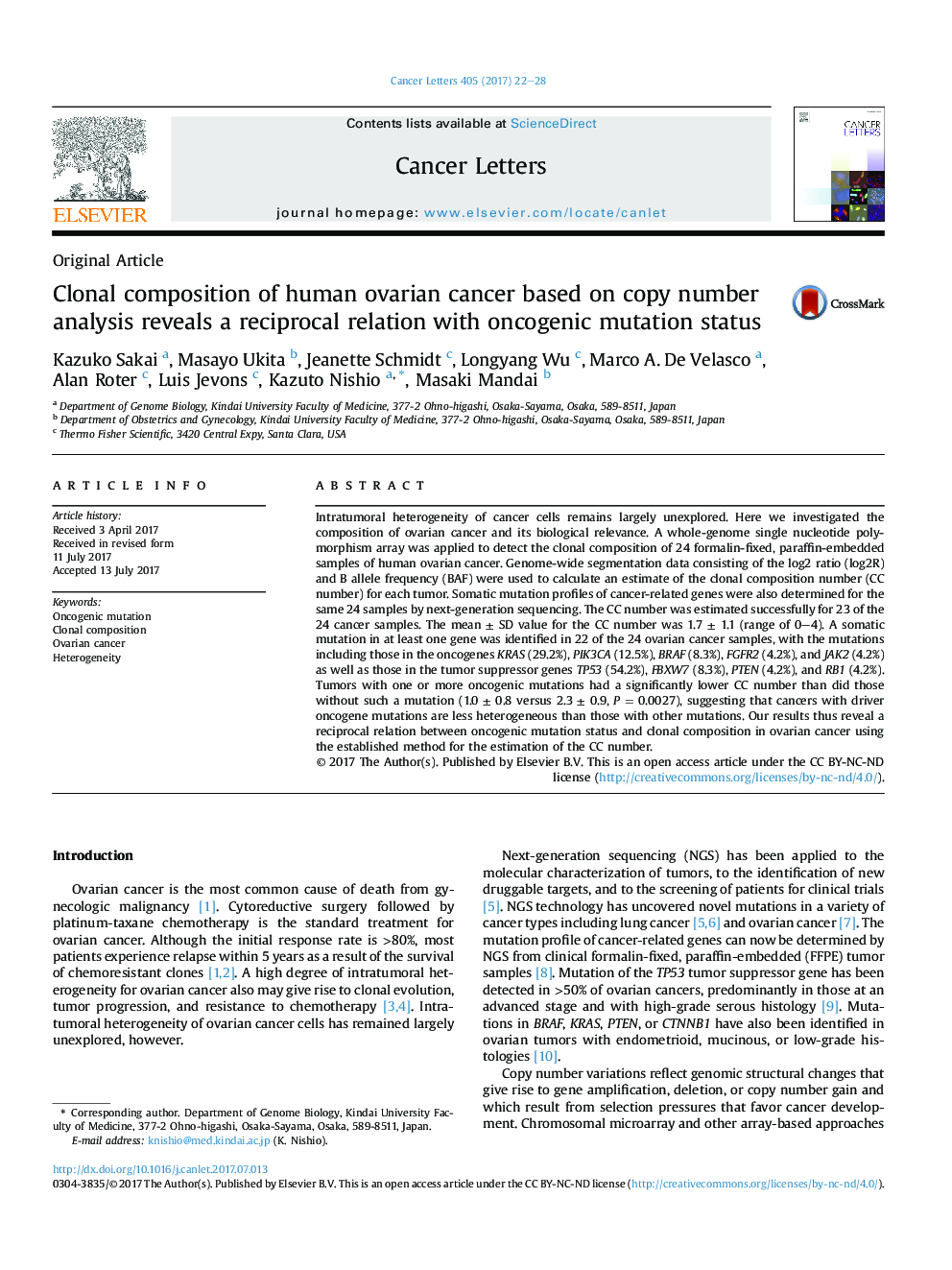| Article ID | Journal | Published Year | Pages | File Type |
|---|---|---|---|---|
| 5525199 | Cancer Letters | 2017 | 7 Pages |
â¢The clonal composition number in tumor tissue was estimated from the whole-genome copy number profile.â¢Genome-wide segmentation data consisting of log2R and BAF provide an estimate of the number of cell clones in a tumor.â¢Clonal composition number showed a reciprocal relation with oncogenic mutation status.
Intratumoral heterogeneity of cancer cells remains largely unexplored. Here we investigated the composition of ovarian cancer and its biological relevance. A whole-genome single nucleotide polymorphism array was applied to detect the clonal composition of 24 formalin-fixed, paraffin-embedded samples of human ovarian cancer. Genome-wide segmentation data consisting of the log2 ratio (log2R) and B allele frequency (BAF) were used to calculate an estimate of the clonal composition number (CC number) for each tumor. Somatic mutation profiles of cancer-related genes were also determined for the same 24 samples by next-generation sequencing. The CC number was estimated successfully for 23 of the 24 cancer samples. The mean ± SD value for the CC number was 1.7 ± 1.1 (range of 0-4). A somatic mutation in at least one gene was identified in 22 of the 24 ovarian cancer samples, with the mutations including those in the oncogenes KRAS (29.2%), PIK3CA (12.5%), BRAF (8.3%), FGFR2 (4.2%), and JAK2 (4.2%) as well as those in the tumor suppressor genes TP53 (54.2%), FBXW7 (8.3%), PTEN (4.2%), and RB1 (4.2%). Tumors with one or more oncogenic mutations had a significantly lower CC number than did those without such a mutation (1.0 ± 0.8 versus 2.3 ± 0.9, P = 0.0027), suggesting that cancers with driver oncogene mutations are less heterogeneous than those with other mutations. Our results thus reveal a reciprocal relation between oncogenic mutation status and clonal composition in ovarian cancer using the established method for the estimation of the CC number.
